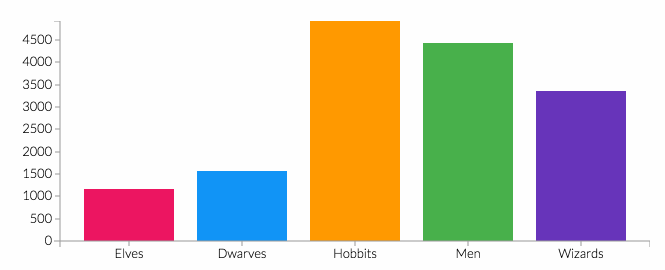TANGGAPAN GURU PAUD TENTANG PEMBERIAN REWARD DAN PENGARUHNYA TERHADAP MOTIVASI BELAJAR DAN PERKEMBANGAN SOSIAL EMOSIONAL ANAK USIA DINI
DOI:
https://doi.org/10.33853/jecies.v1i2.90Keywords:
Reward, Learning Motivation, Social-emotional DevelopmentAbstract
The purpose of this study was to determine the responses of PAUD teachers in East Ciputat sub-district regarding the effect of reward on learning motivation and socio-emotional development of early childhood. The method used is descriptive quantitative with survey techniques, using a questionnaire (questionnaire) using the google form application. Questionnaires (questionnaires) are given to respondents online via WhatsApp, then the collected data will be analyzed. The study population was kindergarten teachers in East Ciputat District, and the number of respondents was 100 people with the sampling technique using simple random sampling. From the data obtained, as many as 80% of respondents answered that they often gave rewards in the form of good words, namely: good, true, great, cool and smart to children. In addition, as many as 65% of respondents answered that very often they gave an assessment with a thumbs up, clapping and smiling. It is known that the results of the respondent's answer who gave an assessment in the form of a sticker or stamp were 70%. Meanwhile, 72% of respondents answered very often that motivation creates a desire to learn in school children. So motivation which serves as a driving force significantly influences learning attitudes in children. Furthermore, 67% of respondents answered that very often children do learning activities with all their soul and body (willing / not forced, happy, sincere). So based on the theory and the results of the respondents' answers, it can be concluded that motivation is the driving force of the desire to learn in children.
References
Allen Marots (2010). Profil Perkembangan Anak. PT.Indeks.
Carter Deborah (2016). A Nature-Based Social-Emotional Approach to Supporting Young Children’s Holistic Development in Classrooms With and Without Walls: The Social-Emotional and Environmental Education Development (SEED) Framework.
Domitrovich, Celene E, dkk (2007). Improving Young Children’s Social and Emotional Competence: A Randomized Trial of The Preshool “PATHS†Curriculum. The Journal of Primary Prevention, Vol.28, No.2, March 2007: Springer Science+Business Media, LLC.
Djamarah, Syaiful Bahri. (2011). Psikologi Belajar. Jakarta : PT Rineka Cipta
Hamalik,Oemar. (2010). Psikologi Belajar dan Mengajar. Bandung : Sinar Baru Algesindo
Hapsari,Rian Putri. (2013). Studi Tentang Pelaksanaan Pemberian Reward Dalam Meningkatkan Motivasi Belajar. Jurnal BK Unesa, 4(1). Diunduh dari https://www.neliti.com/publications/249546/studi-tentang-pelaksanaan-pemberian-reward-dalam-meningkatkan-motivasi-belajar-k
Kazhim, M. N. (2011). Sukses Mendidik Anak Tanpa Kekerasan. Solo: Samudera
Lam, Lawrence T and Wong, Emmy.M.Y (2017). Enhancing Social-emotional Well_Being in Young Children Through Improving Teachers’ Social-Emotional Competence and Curriculum Design in Hong Kong. International Journal of Child Care and Education Policy. Springer Open. http://creativecommons.org/licenses/by/4.0/.
Muthia, D. (2010). Psikologi Bermain Anak Usia Dini. Jakarta: Kencana
Richa Puspitasari. (2015). Pengaruh Pemberian Hadiah (Reward) Terhadap Kemandirian Belajar Anak di TK Tunas Muda Karas Kabupaten Magetan TA 2015/2016. Prosiding Seminar Nasional Pendidikan,Universitas Sebelas Maret Surakarta dan ISPI Wilayah Jawa Tengah. .
Robert, E. Slavin. (2011). Psikologi Pendidikan Teori dan Praktik. Jakarta : Indeks
Rosyid, M. Zaiful. (2018). Reward dan Punishment Dalam Pendidikan. Malang : Literasi Nusantara
Santi, Danar. (2009). Pendidikan Anak Usia Dini. Jakarta: PT Macanan Jaya Cemerlang
Sardiman. (2014). Interaksi Motivasi Belajar Mengajar. Jakarta : PT Raja Grafindo Persada
Shala Merita (2013). The Impact of Preschool Social-Emotional Development on Academic Success of Elementary School Students. Scienticif Research Vol.4, No11, 787-791. http://www.scirp.org/journal/psych.
Sumantri, Syarif Mohamad. (2015). Strategi Pembelajaran. Depok : PT Raja Grafindo Persada
Sukmadinata. (2011). Landasan Psikologi Proses Pendidikan. Yogyakarta : Pustaka Pelajar
Sukmadinata, Nana Syaodih. (2011). Metode Penelitian Pendidikan. Bandung : PT Remaja Rosdakarya
Syah, Muhibin. (2003). Psikologi Belajar. Depok: PT Raja Grafindo Persada.
Uno, B. Hamzah. (2012). Teori Motivasi dan Pengukurannya Analisis di Bidang Pendidikan. Jakarta : Bumi Aksara
Wantah, J. Maria. (2005). Pengembangan Disiplin dan Pembentukan Moral Pada Anak Usia Dini. Jakarta : Departemen Pendidikan Nasional
Wahyudi Setiawan. (2018). Reward and Punishment dalam Perspektif Pendidikan Islam. Jurnal Al-Murabbi Volume 4, Nomor 2, Januari 2018.
Yates Tweety.,et al (2008). Research Synthesis on Screening and Assesing Social-Emotional Cometence. The Center on the Social and Emotional Foundation for Early Learning: Vanderbit University.




